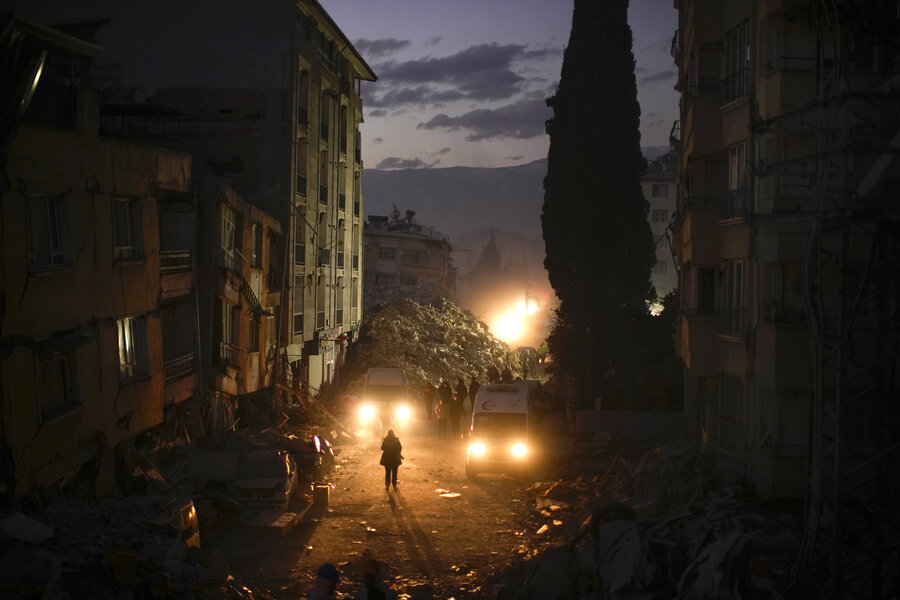An earthquake unearths Turkey’s democratic roots
For two decades, Recep Tayyip Erdoğan has ruled Turkey with an autocrat’s toolbox. Now, three weeks before a potentially pivotal election, Mr. Erdoğan is trailing in the polls. If he loses, it won’t be to a personal opponent so much as to an ideal.
That is because the powerful earthquakes that devastated cities and towns across southern Turkey and parts of neighboring Syria in February altered more than the physical landscape. They exposed the weaknesses of a state built on corruption, patronage, and intimidation, and have renewed the people’s faith in the moral strength of their communities and their own agency. For ordinary Turks, rebuilding their homes has become one with rebuilding their democracy.
The earthquakes “revealed a society that is highly resistant, creative, and active,” observed Hürcan Asli Aksoy and Salim Çevik of the Center for Applied Turkey Studies in Germany. “Civil initiatives took the lead where the state was absent and proved more reliable and successful. These qualities, which cross-cut Turkey’s otherwise identity-based fault lines, demonstrate the country’s potential to heal its wounds.”
Mr. Erdoğan was elected prime minister in 2003. His tenure has been a project in consolidating power. But that now appears to have backfired. Mr. Erdoğan’s political strength relies in large part on the backing of the construction industry, which accounts for 40% of total fixed-capital investment. When an estimated 300,000 buildings crumbled during the earthquakes, that system literally came crashing down, exposing the government’s lax enforcement of building codes and sparking the arrests of hundreds of contractors for corruption and shoddy construction.
Two days after the earthquakes, Mr. Erdoğan promised to rebuild the devastated regions within a year. That brought a chorus of condemnation from engineering associations, local officials, and civil society organizations, who saw in the president’s pledge further proof of reckless disregard both for sound building practices and the cultural integrity of communities that stretch back generations.
A public opinion survey conducted by the Istanbul-based Spectrum House at the end of March found that 82% of voters thought local government should be strengthened and the centralization of power in Mr. Erdoğan’s presidential system reversed. For Anna Maria Beylunioğlu, a political scientist who returned to help her home town of Antakya after the earthquakes, that reversal is about dignity.
“We will give a voice to the inhabitants of Antakya, so that the city can be rebuilt as before,” she told French journalists in March. Roughly 80% of the ancient city had been destroyed. “I don’t know if it will be heard, but it will remain as a reference point.”
Disasters can often bring new visions of a better future. “Demands for political change can emerge from unexpected places, and when they do, they can offer hope to millions of others,” observed MIT economics professor Daron Acemoglu and Turkish investment banker Cihat Tokgöz in a recent op-ed on the website Project Syndicate. “That, more than a new government, is what true change requires.”
Mr. Erdoğan’s main presidential challenger in the election has pledged to restore the independence of institutions like the parliament, judiciary, and free press if elected. Regardless of the ballot’s outcome, popular demands for democratic change are already building a different Turkish future.






